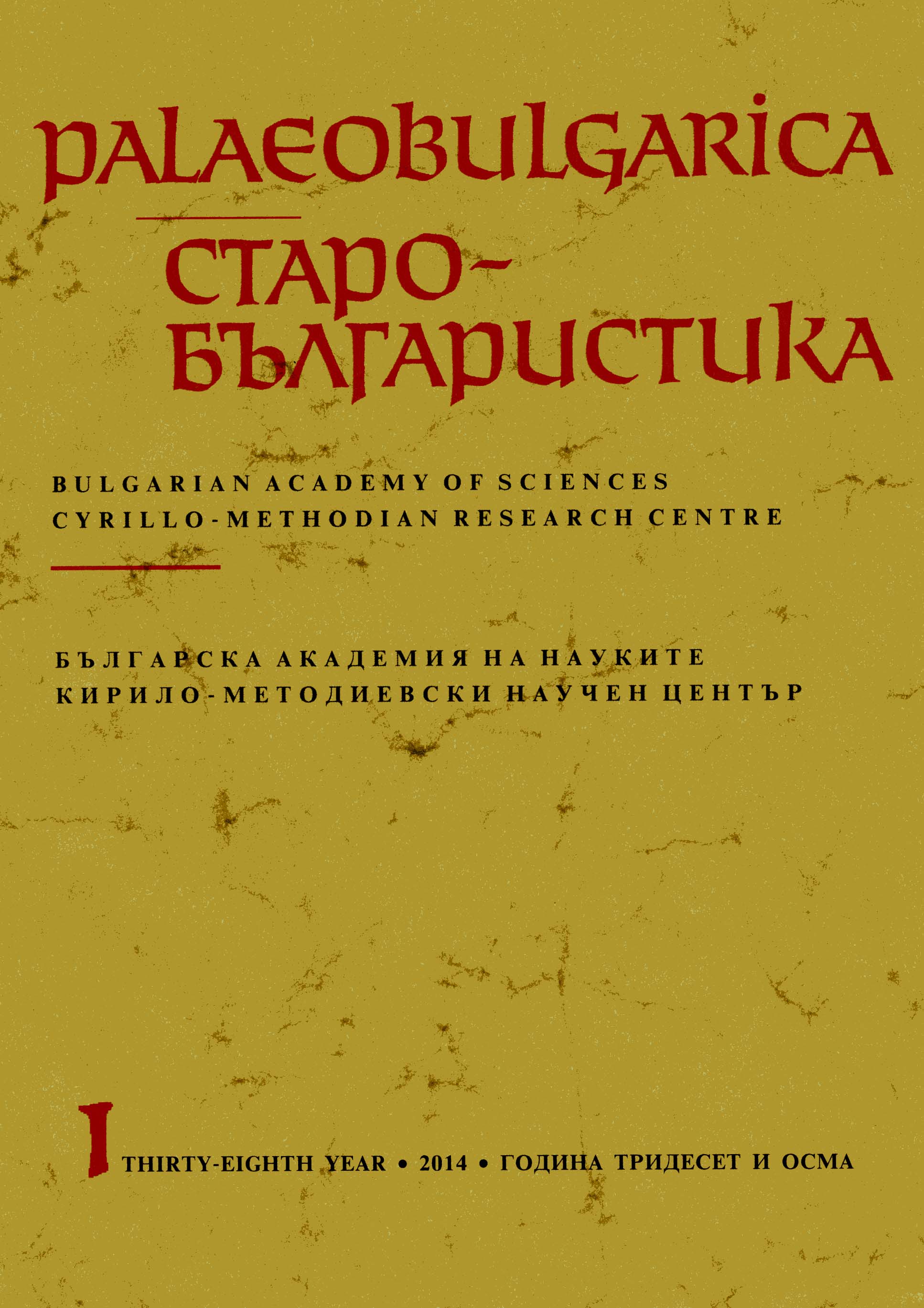Българското царство в предсмъртната молитва на мъченик Арета
The Bulgarian Kingdom in the Last Prayer of Martyr Arethas
Observations on the Slavic Version of Martyrium S. Arethae et Sociorum
Author(s): Diana AtanasovaSubject(s): Language and Literature Studies
Published by: Кирило-Методиевски научен център при Българска академия на науките
Summary/Abstract: The article explores the appearance of a “Bulgarian kingdom” in a verse of the last prayer of Arethas in the South Slavic version of the Martyrium S. Arethae et Sociorum. There are only two South Slavic witnesses that preserve the last prayer of the saint. These are a miscellany, compiled and written by Vladislav the Grammarian in 1469 and a panegyric manuscript, written in 1483 by Mardarii of Rila. While in the Byzantine original the verse under discussion says: Jesus Christ, raise the horn of the Christian Rhomaioi and give the kingdom of the lawless Jews to the Christians who will obey, in its South Slavic version there is an interesting addition mentioning Greek, Ethiopian and Bulgarian Kingdoms {Jesus Christ, raise the Christian horn and strengthen the Greek, Ethiopian and Bulgarian kingdoms and give this kingdom to the Christians who obey your will). What has provoked this concretization of the kingdoms? The main hypothesis of the paper is that the addition of Greek, Ethiopian and Bulgarian kingdoms produced a new meaning of the verse, which is the result of different frames of knowledge. The mentioning of the three kingdoms is not just a symptom of the awareness of the medieval Bulgarian copyists of the cultural, political and religious environment of their time, but also it sheds light on the functioning of the hagiographical text as a repository of historical knowledge and figures of remembrance. In conclusion it can be said that the (at first sight) insignificant addition represents in a wonderful way the devices of reading, understanding and compiling texts in the Medieval world, on the one hand, and the ways man becomes aware of himself and his place in the Christian community, on the other. It shows how man's real and private history corelates with the big narrative of sacred Christian history.
Journal: PALAEOBULGARICA / СТАРОБЪЛГАРИСТИКА
- Issue Year: 2014
- Issue No: 1
- Page Range: 32-44
- Page Count: 13
- Language: Bulgarian
- Content File-PDF

